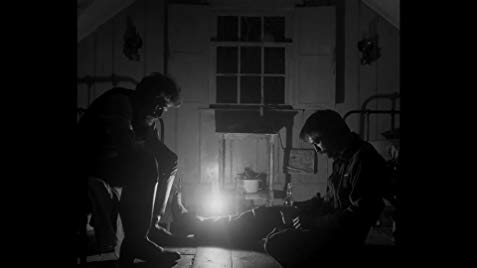
Human connection and contact is a crucial part of our mental health. Isolating a person from contact with others can lead to heightened negative emotional effects such as increased aggression and paranoia. The latest film from horror maestro Robert Eggers The Lighthouse seeks to paint a picture of this phenomenon on a horror canvas as we follow two lighthouse keepers, Thomas Wake (Willem Dafoe) and Ephraim Winslow (Robert Pattinson) as they try to maintain their sanity while living on a remote and mysterious New England island in the 1890s.
The Lighthouse is a surrealist view of how isolation turns normal people into scrambled versions of themselves. As they man the lighthouse together with no one to turn to but each other, we watch as Winslow slowly loses his grip on reality, losing sight of what’s real and what isn’t. He and Wake have an adversarial relationship throughout but when Winslow tries to leave the lighthouse, Wake stops him by smashing the boat he planned to flee in. The love-hate relationship they display throughout highlights the effects that loneliness can have; simultaneously pushing the two workers away from each other but pulling them back together when faced with the prospect of losing the only other human in the vicinity. Indeed, as the two go crazy inside the lighthouse with only each other around, so too does the audience. Eggers does a good job in injecting ambiguity and mystery in the film, interspersing the narrative with hallucinations from Wallace, in addition to a backstory based in deceit, that make us question what is real and what isn’t. The very nature of the work calls reality into question; lighthouses are usually manned by one person, that two are at work here makes us wonder, is one of them just a figment of the other’s imagination? The result of psychosis brought upon by isolation manifested into a separate entity? As isolation creates confusion, so too does The Lighthouse’s narrative, bringing to life the theme of the film?
Dafoe and Pattinson shine as the two incredible actors are wont to do, transforming themselves into 19th century working class men through both appearance and speech. The relationship as presented onscreen is believable due to the chemistry displayed by the two actors. The film’s cinematography also stands out not just because of the black and white photography utilized, but because of the 1:19:1 aspect ratio (the height x width of the image onscreen) that Eggers and director of photography Jarin Blaschke decided upon. The tighter, more square/box-like frame is meant to invoke the early days when cinema first added sound in the mid-1920s through early-1930s and gives it a unique feel.
The Lighthouse is undoubtedly a well-made film, featuring top notch performances from two of Hollywood’s best working actors in Willem Dafoe and Robert Pattinson, dynamic black and white cinematography, and a deep dive into the human psyche by director Robert Eggers, but the one thing the film lacks is the most pertinent element that movies depend on; being engaging or interesting. Despite the many quality elements contained herein, The Lighthouse just isn’t engrossing or captivating enough to equal the sum of its parts. As well as Dafoe and Pattinson act, the story being told fails to make much of an impact. And even though the premise of a slow descent into madness driven by isolation and lack of human connection is substantively strong, it just fails to present anything interesting alongside it. The film plays around a lot with ambiguity and open-endedness regarding the reality inhabited by Winslow and Wake, but giving the audience too few concrete answers in lieu of playing coy feels like a mistake in the end for a film that could have used something solid for viewers to latch onto in order to create an investment in what they’re watching. Swinging for the proverbial artistic fences will always be admirable and preferred to formulaic offerings, but The Lighthouse fails to hit this one out of the park.

